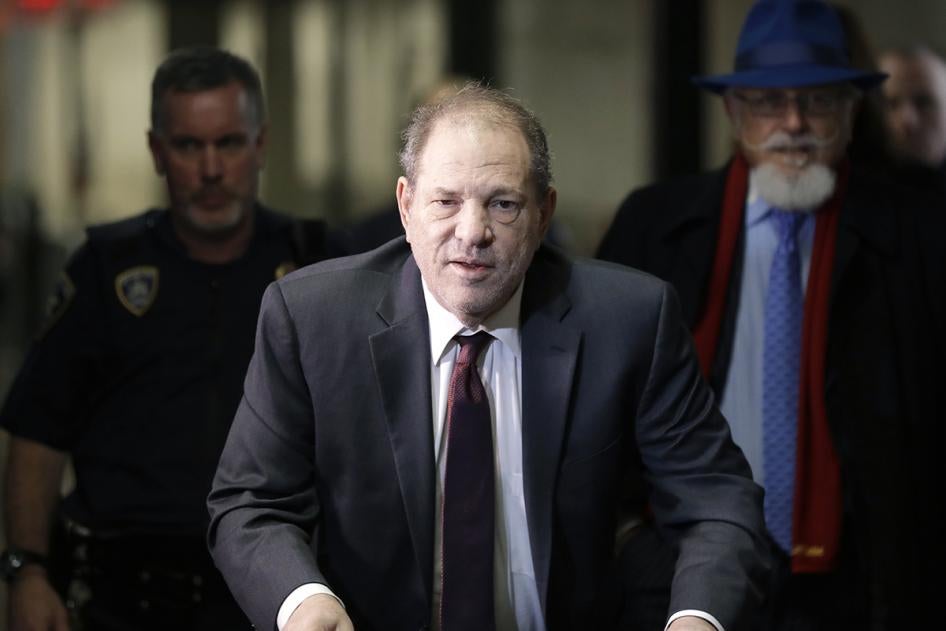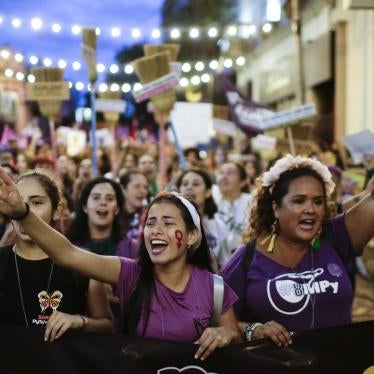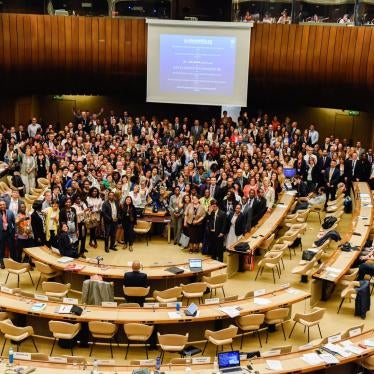A Manhattan judge this week sentenced the Hollywood film producer Harvey Weinstein to 23 years in prison for rape and sexual assault. Handing down a sentence appropriate for the harm Weinstein caused is significant. This level of accountability – not one that rape survivors can typically expect – sends a strong message to the women he assaulted, other perpetrators, and the broader #MeToo movement.
The initial public accusations against Weinstein in 2017 sparked a global explosion of the #MeToo hashtag, originally coined by activist Tarana Burke, with survivors sharing personal stories. The movement’s momentum, which continues today, amplified public debate and activism to end sexual harassment and violence in many countries, including Afghanistan, France, India, Mexico, Nigeria, South Korea, and Tunisia.
While the high-profile cases of sexual harassment and violence exposed have so far largely focused on rich, famous, and powerful men in the entertainment industry, government, and journalism, #MeToo has also highlighted other sectors where this abuse is endemic – and invisible. This includes low-wage sectors such as domestic work, the hospitality sector, and agriculture.
The #MeToo movement has tested laws on sexual harassment globally, in some cases winning redress for survivors, such as in Japan, South Korea, Sweden, and in other cases exposing legal gaps that fuel impunity. For example, a 2018 World Bank report found that 59 out of 189 countries had no specific legal provisions prohibiting sexual harassment in employment.
One exciting advance is the adoption in 2019 of a landmark global treaty establishing international standards to end violence and harassment at work. The International Labour Organization (ILO) Violence and Harassment Convention sets out minimum steps that governments should take to ensure their laws properly protect workers.
Governments that ratify the treaty are obligated to identify high-risk labor sectors, introduce training and awareness-raising, and regulate employers to ensure workplaces have policies against sexual harassment. Governments should also have in place whistleblower protections, accessible ways to make complaints, support for victims, and sanctions for abusers – including civil and criminal remedies.
The conviction and sentencing of Harvey Weinstein shows that in the right circumstances, the law can work, even against very powerful men. The ILO treaty will help ensure governments combat the scourge of sexual harassment and violence in other workplaces, too. Ratifying and implementing the treaty is the best way to ensure that more women can work in dignity and safety.









